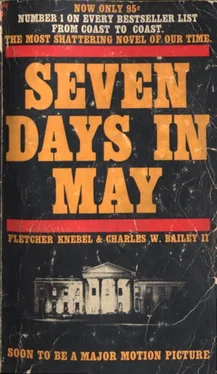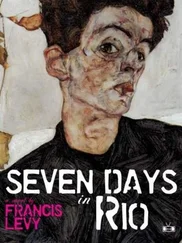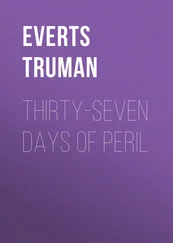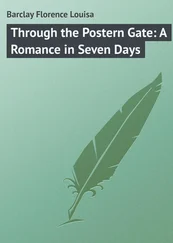The identity of the White House staffer brought a smile to Casey's face. He was Paul Girard, President Lyman's appointments secretary. Casey and Girard had been friends since the days when Girard played basketball for Duke and Casey was a Navy substitute. They had seen each other in Washington, on both business and pleasure, and Casey had sized Girard up several years ago as a man you could trust. He was shrewd, knew where all the bodies were buried on the Hill, and had Lyman's absolute confidence. He was almost ugly, with a head too large for his body, flaring nostrils and sleepy eyelids. Girard was often put down as a clod by strangers who frequently woke up the next morning wondering who had stacked the cards.
"Hi, Jiggs," he said, shifting his whisky to his left hand and offering his right.
"Glad to see you here, Paul. When I get investigated for taking favors from a defense contractor, at least I'll be in good company."
"You know the rule, Jiggs," Girard returned. "Anything you can consume on the spot is okay." He held up his almost empty glass. "And I'm a pretty good consumer."
Casey took a gin-and-tonic from the tray brought over by a waiter who responded to Girard's signal. He looked around for Marge, but she had been swirled away into an eddy of women near the azaleas at the foot of the garden. The pitch of conversation rose steadily, buoyed by alcohol and reinforcements. Casey and Girard found themselves in a group that included Waters and Prentice. The newsman was bracing the senator.
"Did you hear about the Gallup Poll coming out tomorrow?" Waters asked, his voice as noncommittal as it always had been through two administrations at the White House.
"No," said Prentice, "but let me guess. It's about time for another reading on Lyman's popularity, and I'd say he's lucky if he gets 40 per cent."
Prentice oozed the self-assurance that comes with years of power, unencumbered by responsibility, as a Congressional committee chairman. He could attack, second-guess, investigate and chide with never a fear of being proved wrong, for the making and executing of policy was always someone else's job.
The senior senator from California was not a particularly striking figure, but he successfully conveyed the impression of being a man who expected to dominate a gathering and usually did. If he was a bit heavy across the midriff, that gave him a certain advantage over men of less ample bulk. If his gestures were a trifle broad, his voice a shade too strong for ordinary conversation, these characteristics seemed appropriate enough in a man more used to being listened to than listening.
Now, as he looked at Waters for confirmation of his guess, there was a hint in his bearing and glance that he did not expect disagreement-and would not welcome it. He got no contradiction from the reporter.
"You're on the right track, Senator, but too high. The poll out tomorrow will show only 29 per cent saying they 'approve' of the way the President is doing his job. The Gallup people say it's the lowest popularity rating for any President since they started taking the thing."
Prentice nodded and stabbed the air with his forefinger.
"It's this simple," he lectured. "The President trusts Russia. The American people don't. The people don't like this treaty. They don't believe the Russians will take those bombs apart on July first and neither do I."
The treaty, the treaty, the treaty. Casey, and indeed all Washington, had heard nothing else since Congress met in January and President Lyman forced the pact through the Senate with only two votes to spare over the required two-thirds majority. It seemed as though everybody in town had chosen sides in the argument, and letters-to-the-editor pages in newspapers all over the country indicated that the same thing was happening everywhere. Casey sneaked a look over his shoulder to see if he could slip away, but he was hemmed in.
He had heard all he wanted to, and then some, about the nuclear disarmament treaty that would go into effect on July 1. On that date, under the agreement reached by Lyman and Soviet Premier Georgi Feemerov in Vienna last fall, identical moves would be made at Los Alamos and Semipalatinsk. Each country, under the eyes of Indian and Finnish inspectors, was to disarm ten neutron bombs. Each month more bombs would be dismantled, not only by Russia and the United States, but also by the other Western and Communist nuclear powers. All of them, including Red China, had subsequently ratified the treaty. The process would continue until the nuclear lockers of both East and West were bare. The target date for completion was two years hence.
"Don't you think there are other factors affecting the poll, Senator?" It was Waters again. "I mean the high unemployment, inflation, and the mess over the missile-base strikes?"
"Don't you believe it, young man," retorted Prentice. "Every President has had troubles like those. But, my God, Lyman negotiated this treaty in defiance of the facts of life. The Russians haven't kept an agreement since the end of the Second World War. You know I fought the treaty with every fiber of my being and I'm proud of it."
"Yeah," said Girard sourly. "We Democrats really stick together."
Prentice swung toward him, his face twisted with irritation and his forefinger in motion again.
"It was the President who left the Democratic party, Girard," he said. "And I say that as a man who went down the line for him at the convention."
"Well, after all, is the President's position so unreasonable?" The new participant in the debate was a man in a cream-colored sports jacket whose name eluded Casey. "I mean, if Russia reneges or cheats, we know it immediately and the deal is off."
"I've listened to that argument for thirty years," Prentice said, "and every time I hear it used to justify a policy we lose something more. The last time was the summit conference in '70 that was supposed to settle the Iran business. Six months later the country was flooded with Soviet guerrillas and now we're left with two Irans, one of them Communist."
"I don't know, Senator. I don't think I can agree with you so far as President Lyman is concerned." The man in the sports jacket wasn't to be put off so easily. "He may be taking a calculated risk, but it seems to me we're protected. And if the President is willing to risk some of his popularity right now to do the one thing that might save the world, I say more power to him."
You know, I think he may be right, Casey thought. Several others in the group nodded silently. But Prentice wouldn't let it go. He leaned toward the President's defender.
"Don't talk to me about Lyman's 'popularity,' young man. He hasn't got any to lose and he doesn't deserve to have any, either."
The temperature of the discussion was rising along with the intake of cocktails. Dillard bustled over to exercise his pacifying functions as host and adroitly turned the talk to pure politics.
"Leaving the merits of the treaty out of it," he said, "I'll make a bet at reasonable odds that the Republicans nominate General Scott in '76. It's a natural. He's got the personality. If anything goes wrong with the treaty, he's solidly on record against it. And if it works, people will be worrying about Russia's conventional forces and will want a strong man like Scott."
"Oh, Christ," said Girard. "I can see the slogan now: 'Scott, the Spirit of 'Seventy-Six.' "
"You White House boys better not make too much of a joke out of it," Prentice said. "I agree with Stew. Scott's far and away the obvious Republican choice. If the election were today, he'd beat Lyman hands down."
"May I convey the compliments of the senator to the leader of his party?" asked Girard with some heat.
"I'm talking facts, sonny," Prentice shot back. "We simply wouldn't stand a chance against Scott."
Читать дальше












